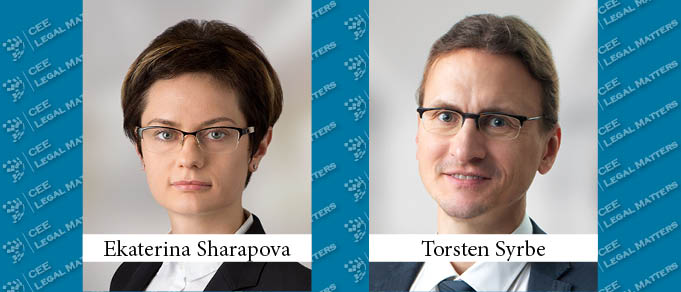A carve-out of a business unit or a product portfolio may be required to optimize internal business processes or as part of a transaction on the sale of a business.
The first key task of business separation planning, irrespective of jurisdiction, is establishing the deal perimeter. Depending on the specific assets to be separated, several legal options can be considered in Russia to implement such a carve-out.
Corporate Spin-off: Corporate reorganization in the form of a spin-off is a highly Russia-specific legal scenario for the separation of a business. Although relatively formalistic, the procedure envisages universal succession – it allows almost all types of assets and liabilities to be transferred.
That being said, regulatory approvals (licenses, product certificates, etc.) cannot be transferred as part of a corporate spin-off. Given that in the process of a corporate spin-off a separate entity is established on the same date that the business is transferred to it, the new entity will have a licensable business from the date of incorporation, but it will not hold a license to run it for about four to six months. Therefore, the transfer of a licensable business or regulated products requires more careful planning, to avoid business interruption upon completion of the corporate spin-off.
A key advantage of corporate spin-offs is that, in most cases, no counterparty consent is required for the transfer of contracts or the transfer of employees.
It should be noted that the procedure of corporate reorganization was not historically designed for the sale of a business and accordingly it is more suitable for internal restructurings. The key documents of a corporate spin-off are corporate resolutions and a transfer certificate – there is no sale-and-purchase or business transfer agreement, and no purchase price is paid for the assets that are being transferred. But that can be managed by introducing more steps to the deal structure in the case of third-party transactions.
The timing of a corporate reorganization is driven by statutory requirements. In practice, they tend to take at least five to six months, but, in the case of complex restructurings, the process may last 10 to 12 months.
Asset Sale: An asset sale is often used as an alternative to corporate reorganization when a regulated business needs to be carved out. Under an asset sale, the regulated business can either be transferred to an existing company that holds the necessary license or a new entity can be incorporated as the future separated holder of the business – and a license in the name of the new entity is applied for before the transfer of the business.
Unlike under corporate reorganization, the transfer of contracts as part of an asset sale generally requires counterparty consent. Therefore, in addition to the master asset sale agreement, bilateral or tripartite assignment agreements with counterparties may be required. Employees’ consents to the transfer are also needed.
The timeline of an asset sale is more flexible than in the case of a corporate reorganization. The duration of the process is mainly dependent on the number and types of assets. However, in the case of third-party transactions, merger control approval may also be required, which generally takes around six months to obtain.
Contribution of Business: Under Russian law, a limited number of assets can be contributed to a Russian company’s share capital or assets. No contracts apart from IP license agreements can be contributed. Contribution to a company’s share capital requires special attention if the net assets of the recipient entity are low. Unlike in the case of corporate spin-offs and asset sales, it is necessary to procure an external valuation of the assets to be transferred as part of the business contribution. A contribution to assets requires no consideration. Contribution to share capital is made in exchange for equity.
Sale of Enterprise: The transfer of a business as a going concern is often discussed at the stage of transaction planning but is not used in practice due to an inherent lack of flexibility. It is regulated as the sale of an enterprise under Russian law. The enterprise is deemed to include immovable property, equipment, materials, finished products, accounts receivable, accounts payable, and IP. The enterprise must be registered as an item of real estate to be transferred.
Russian carve-outs are often more time-consuming and formalistic than in Western Europe. Global templates can hardly ever be used without substantial adjustments. However, all procedures are manageable and can be handled smoothly if the Russian specifics are closely taken into account from the outset.
By Ekaterina Sharapova, Senior Associate, and Torsten Syrbe, Partner, Clifford Chance
This Article was originally published in Issue 8.8 of the CEE Legal Matters Magazine. If you would like to receive a hard copy of the magazine, you can subscribe here.
















